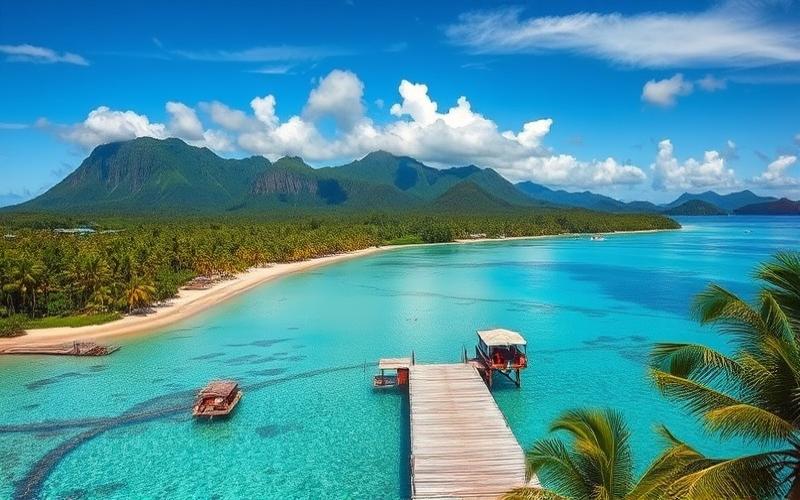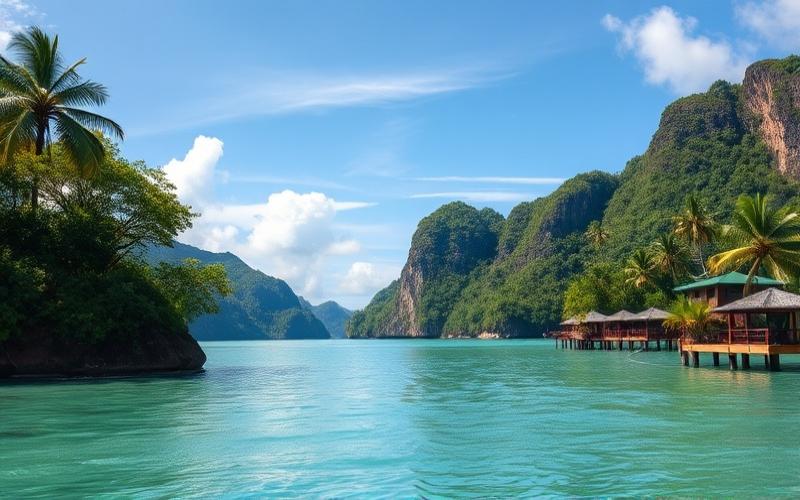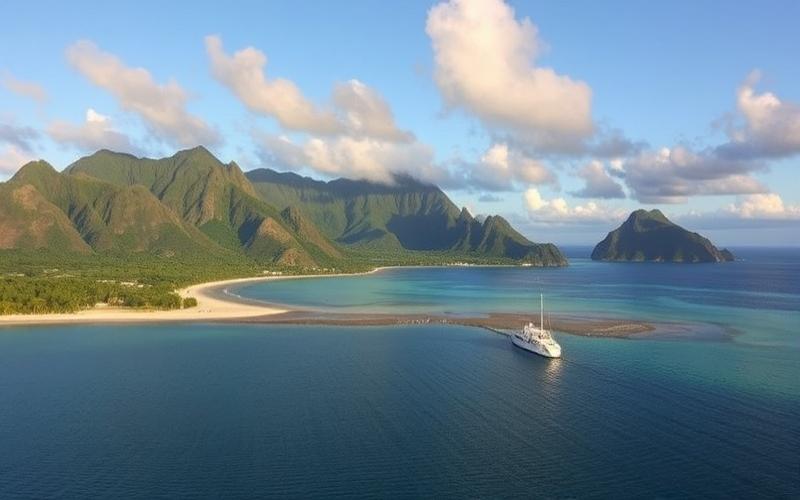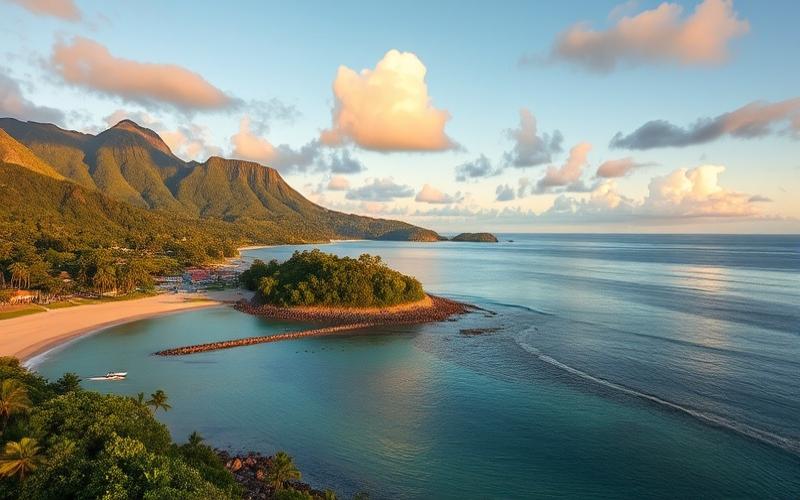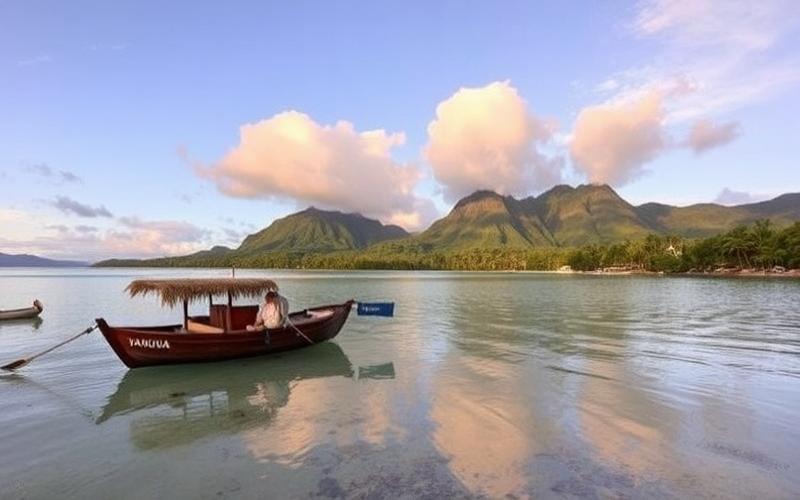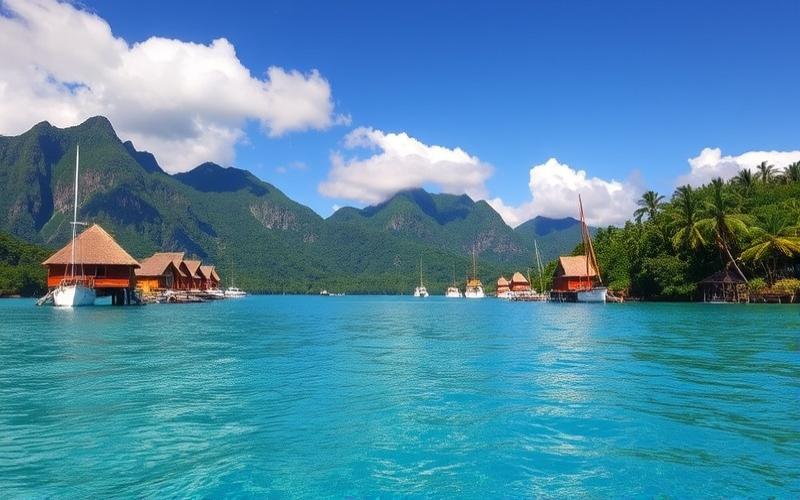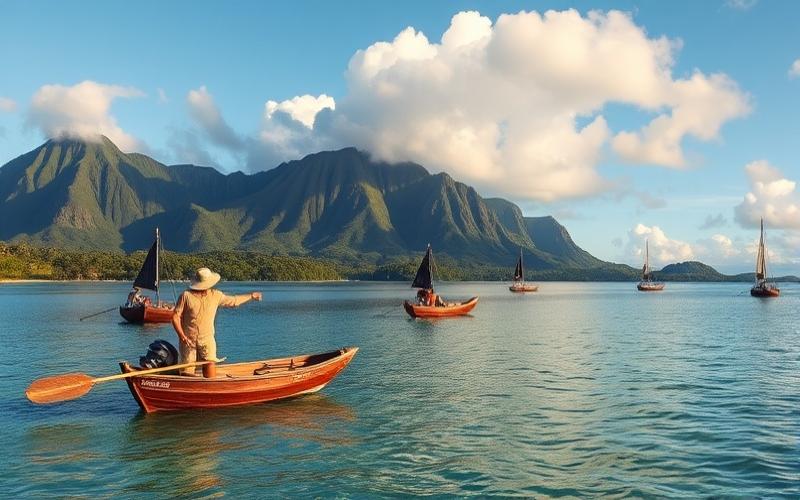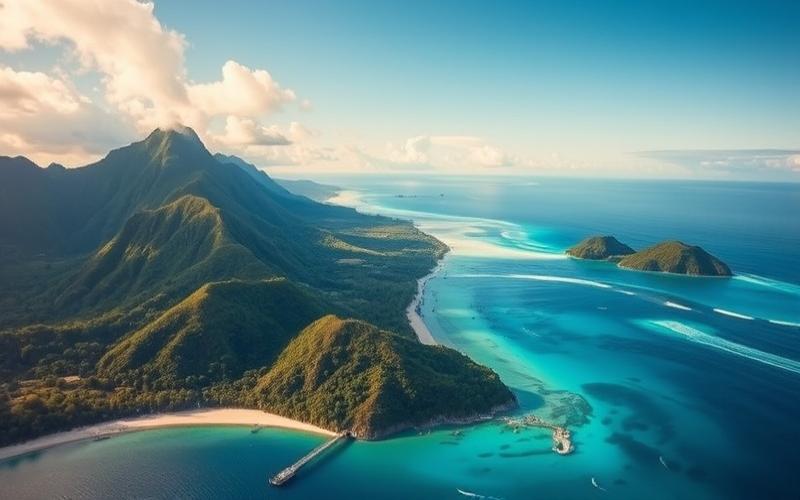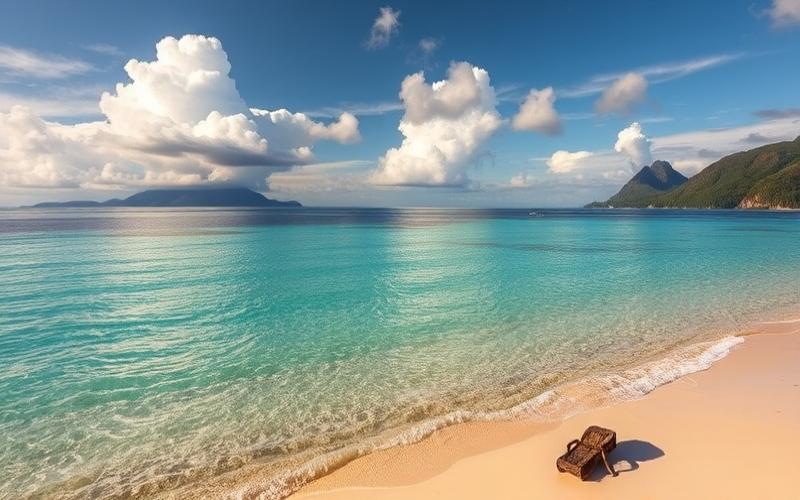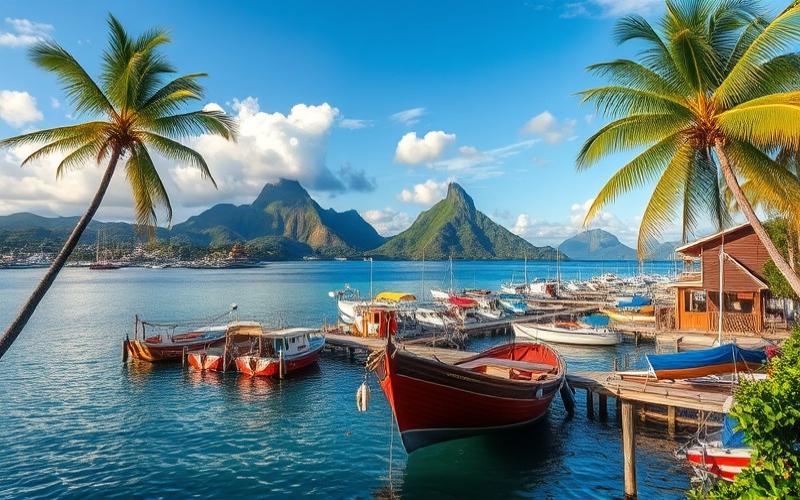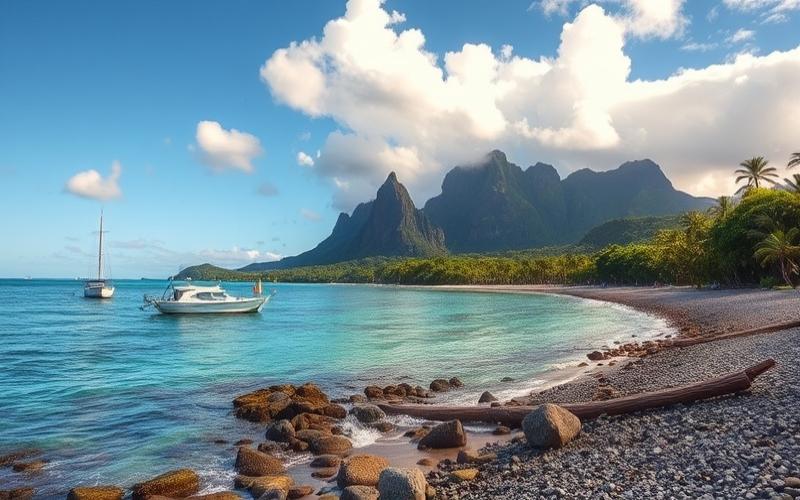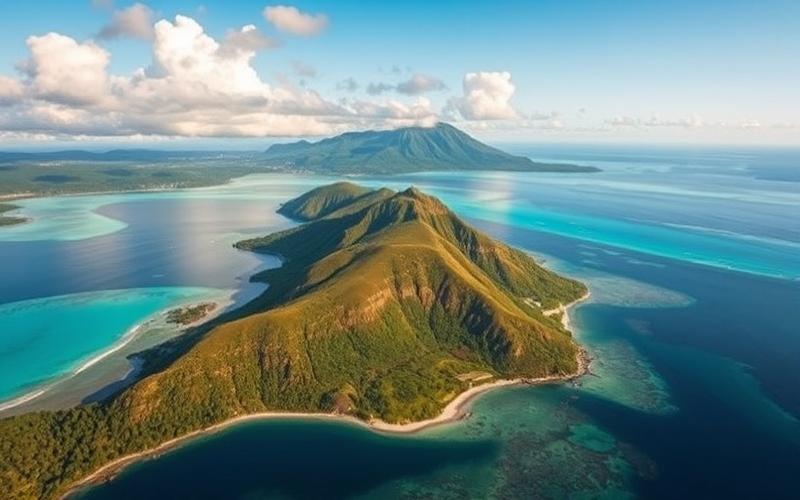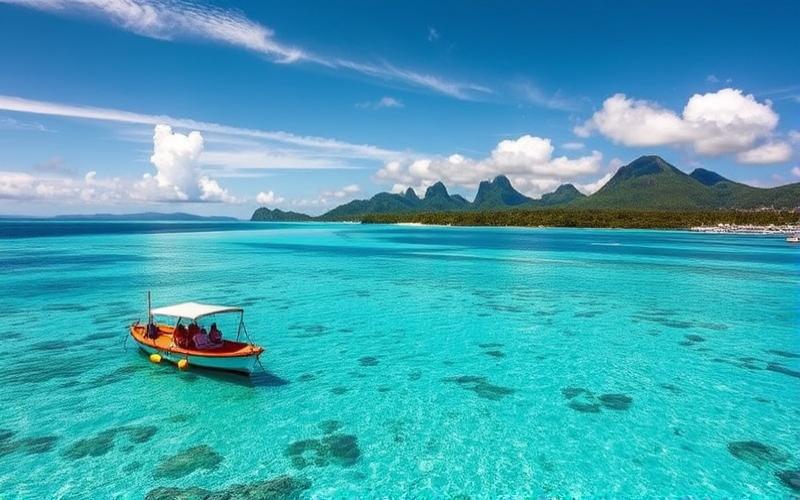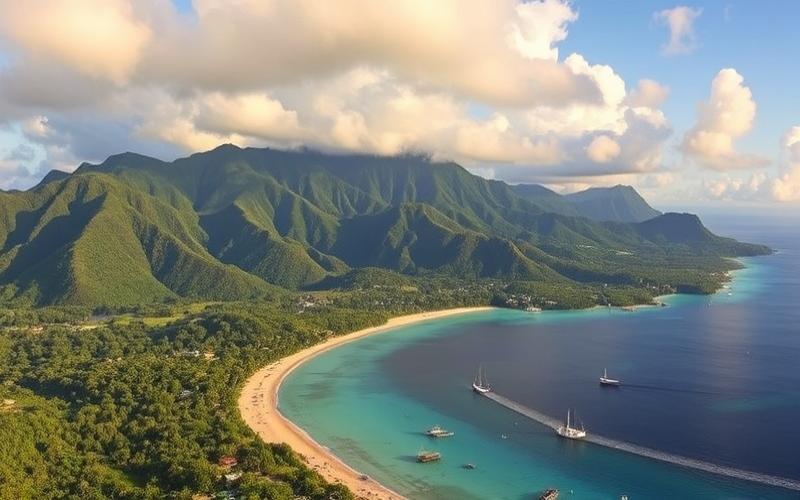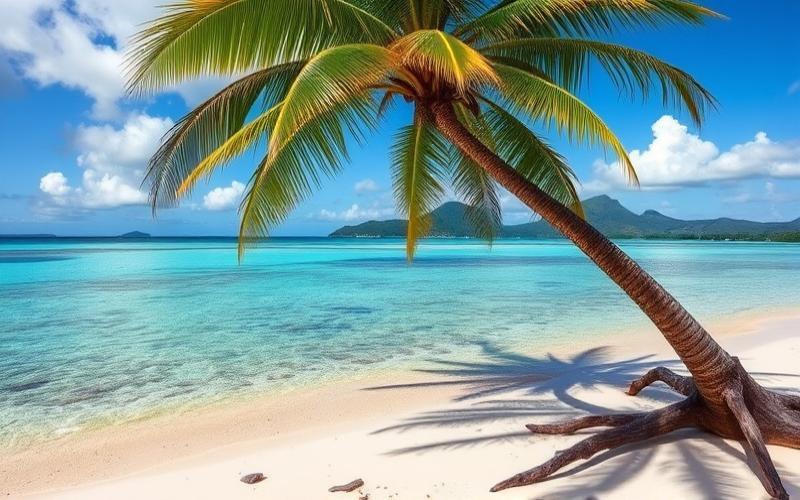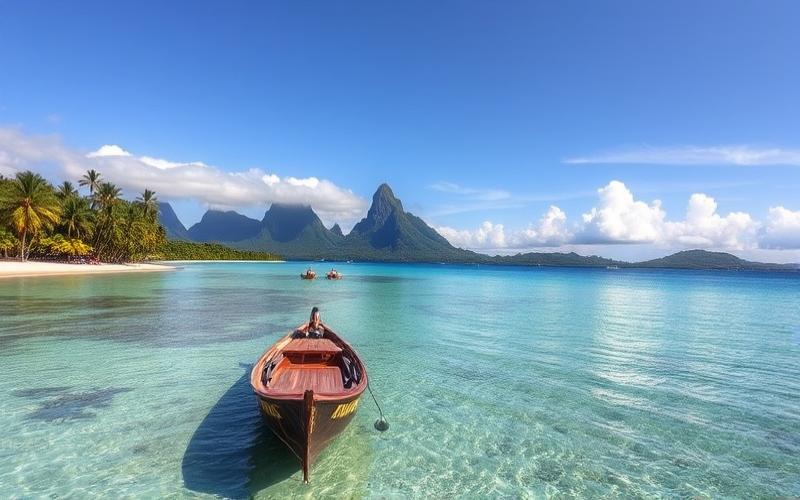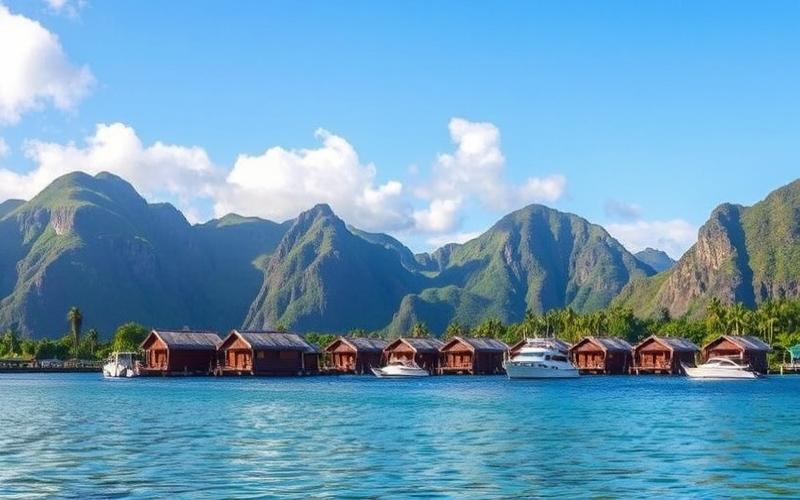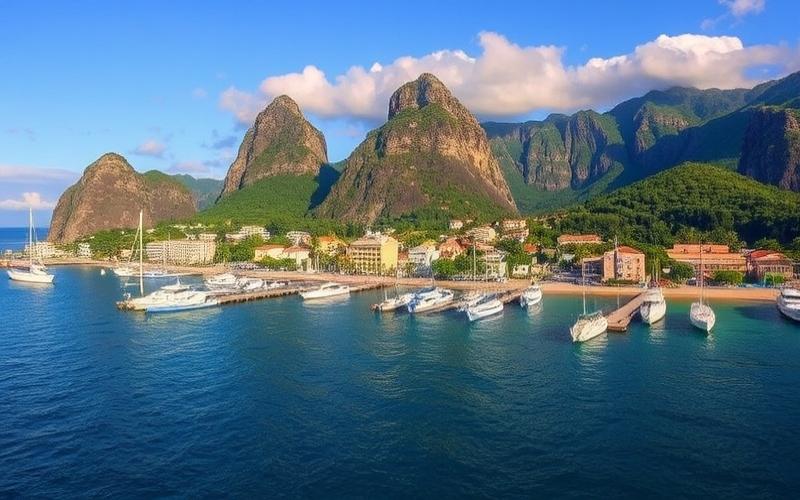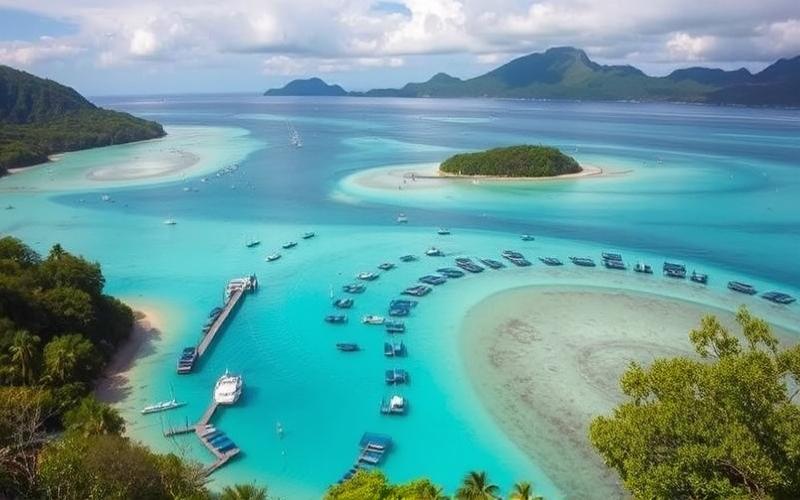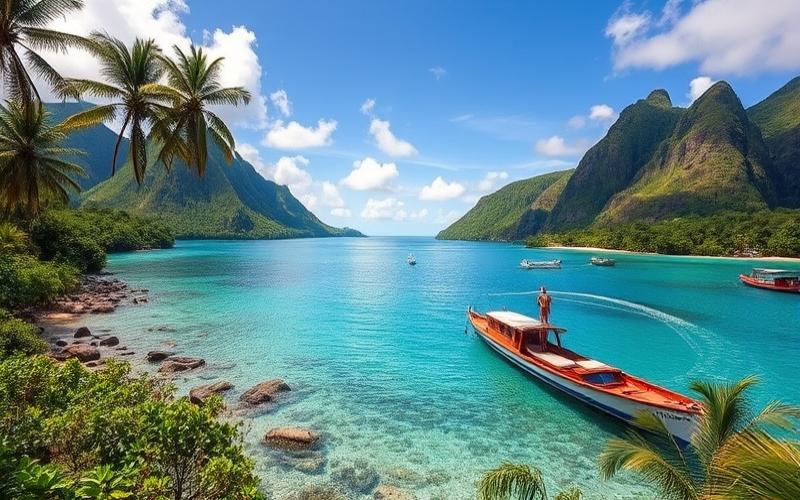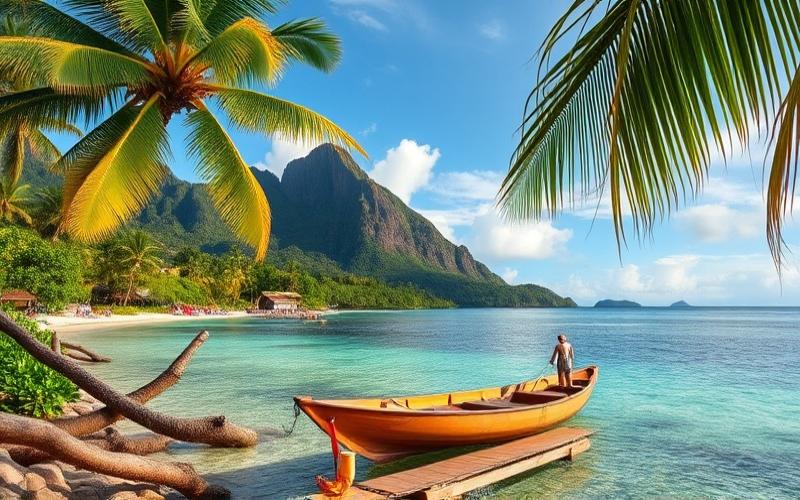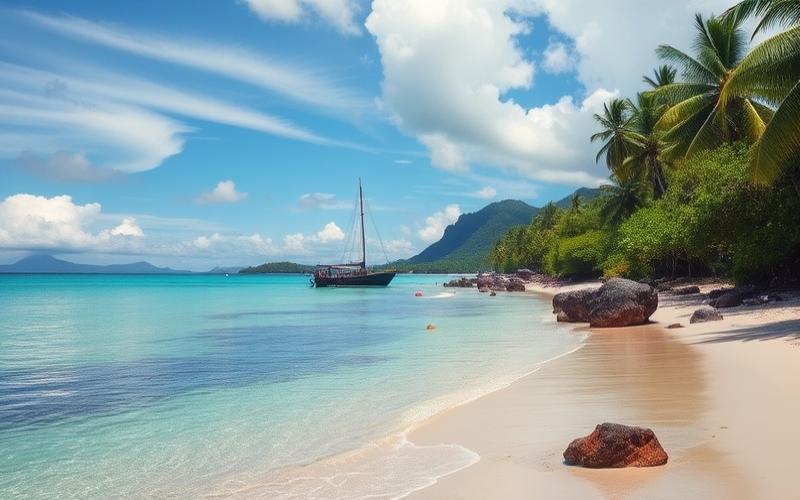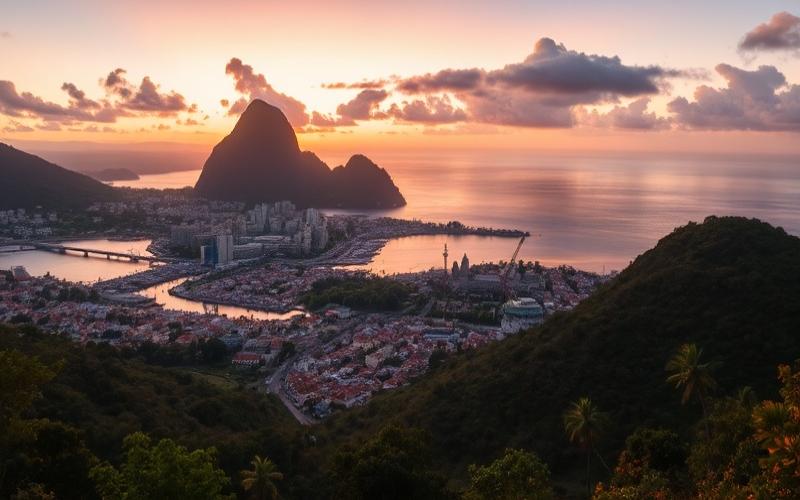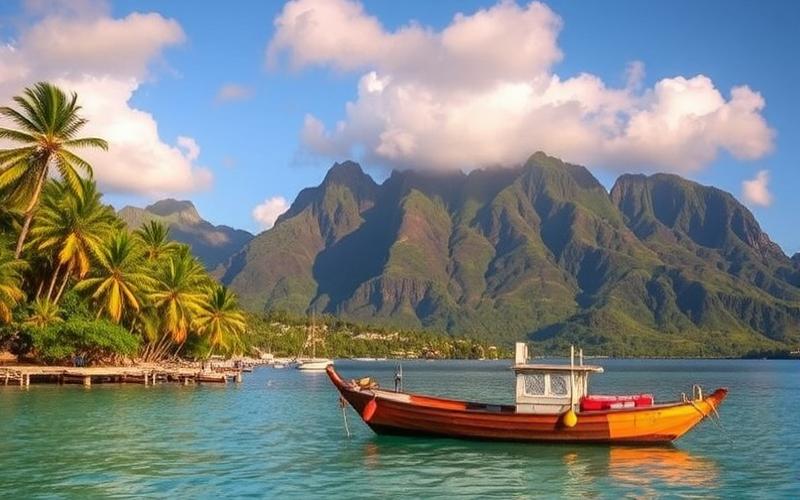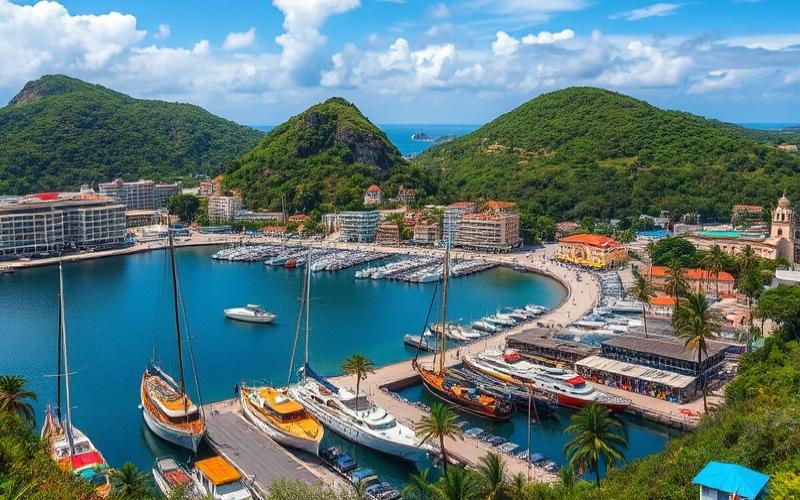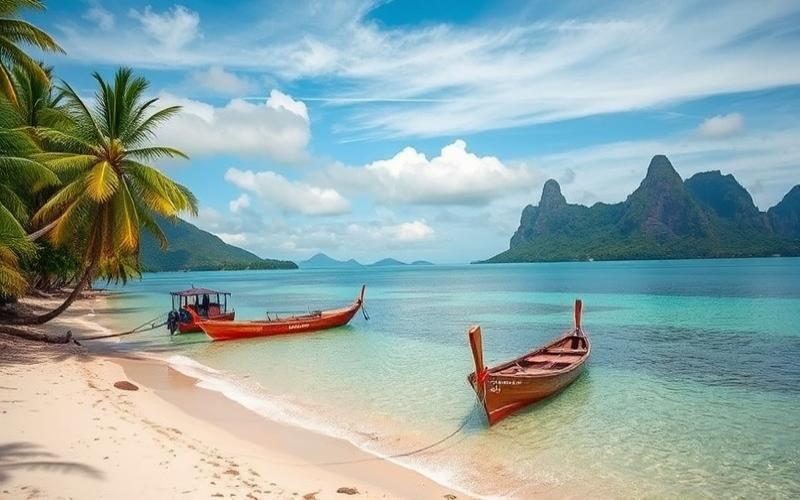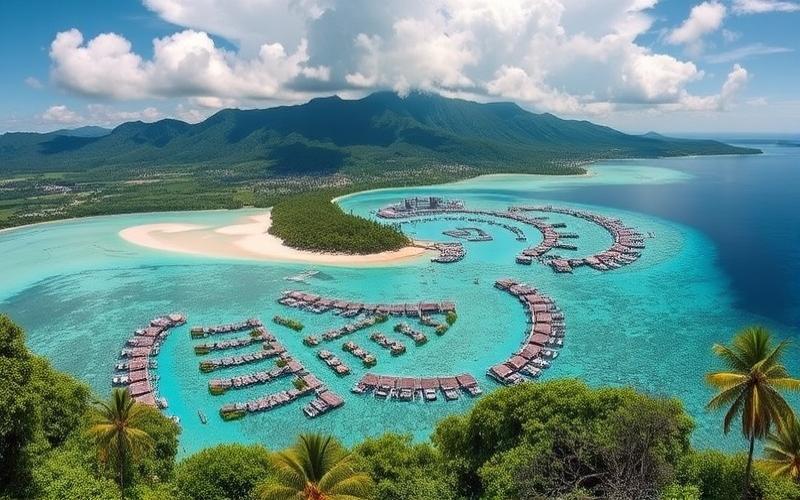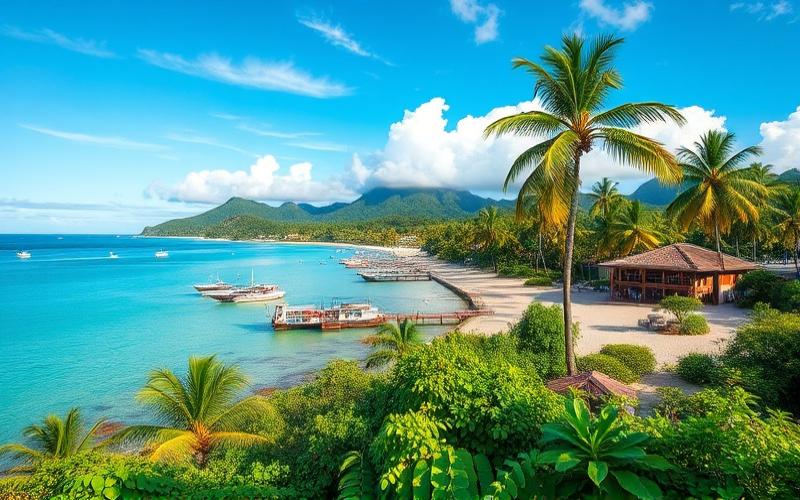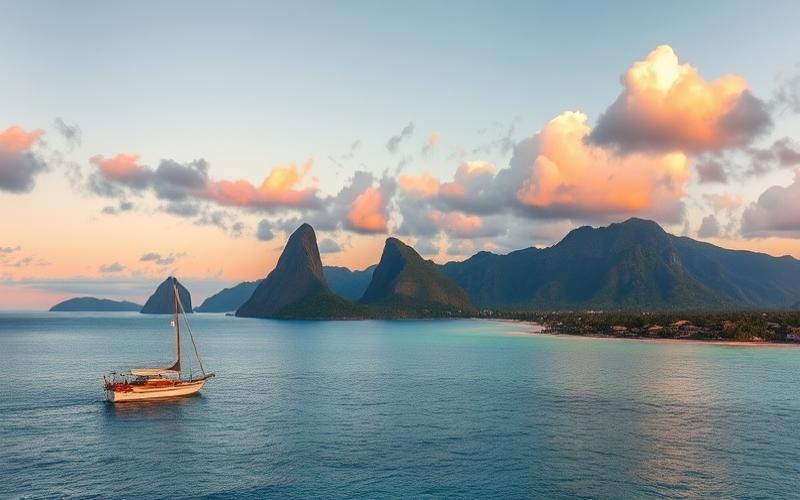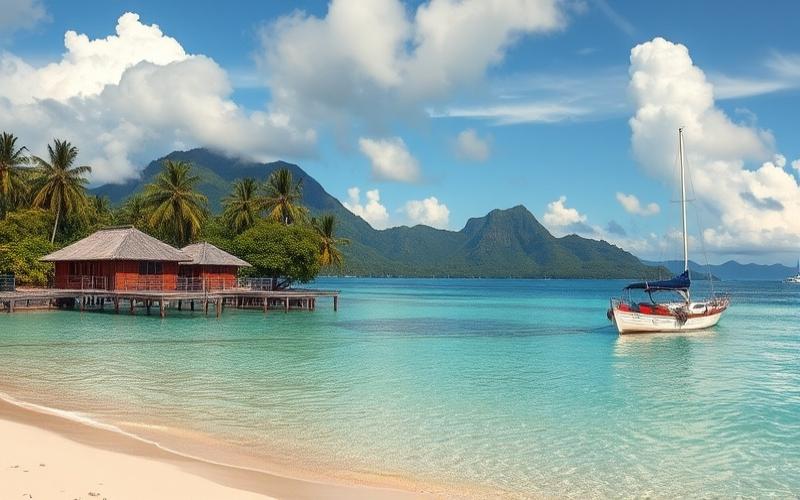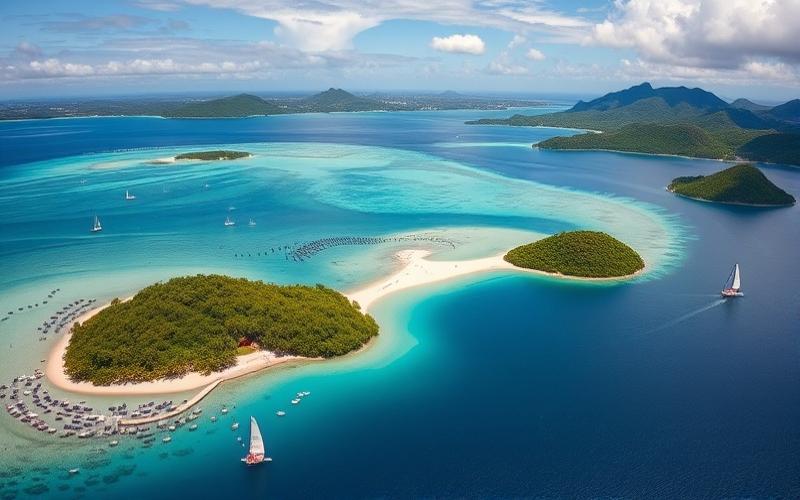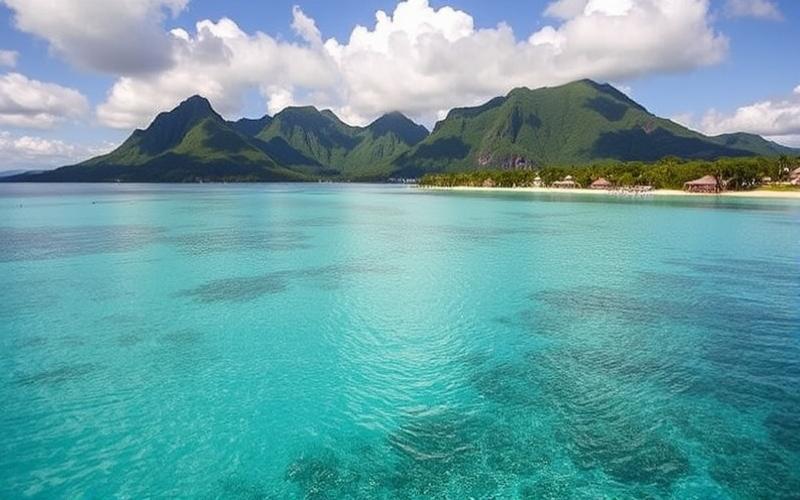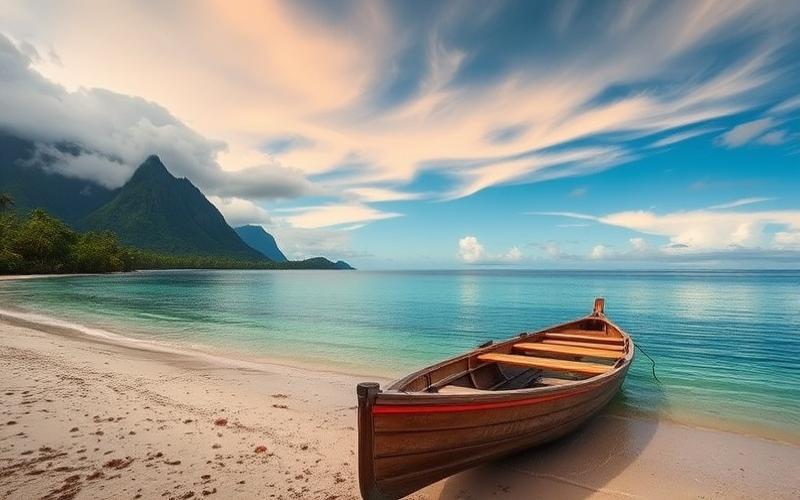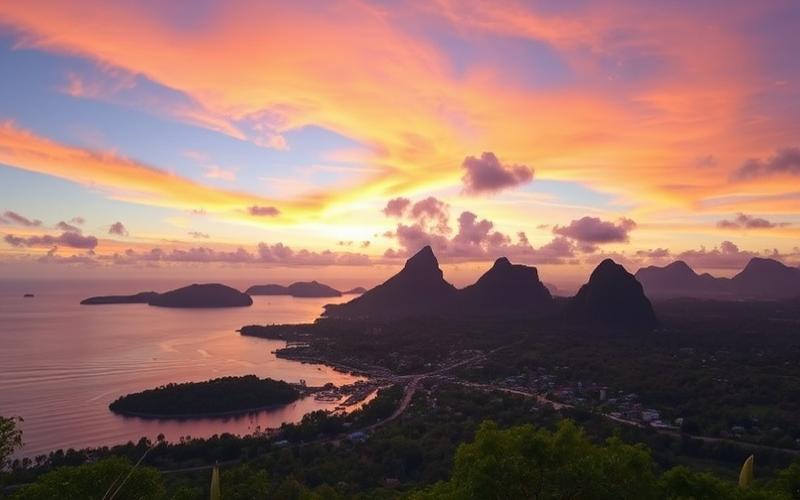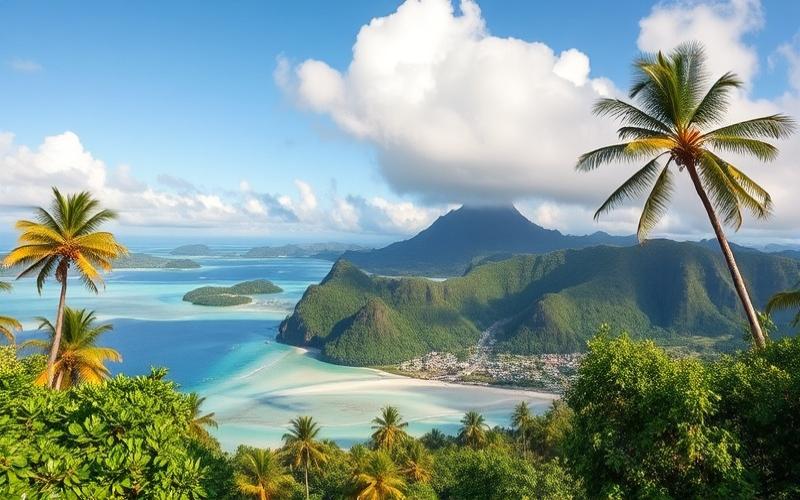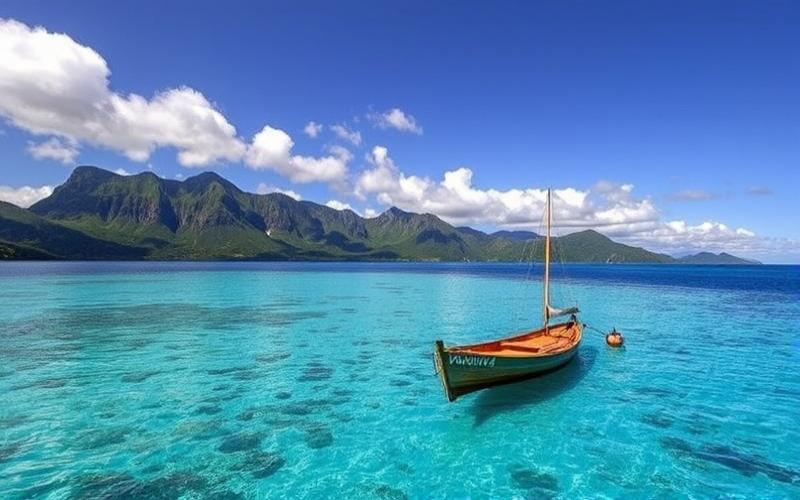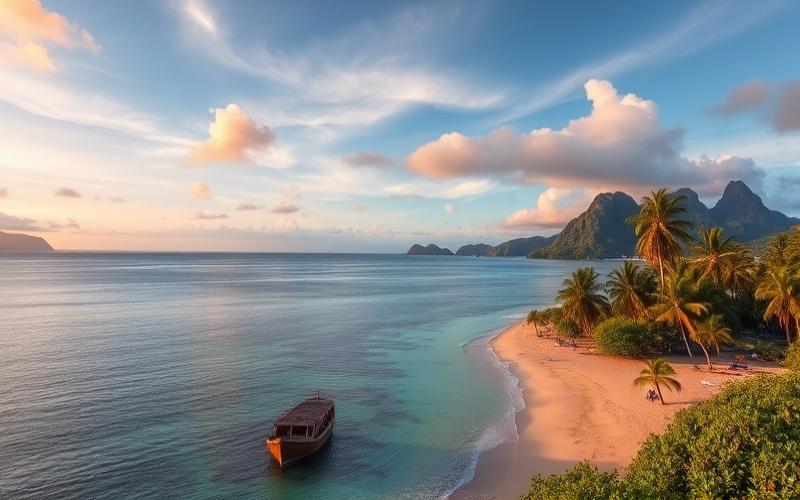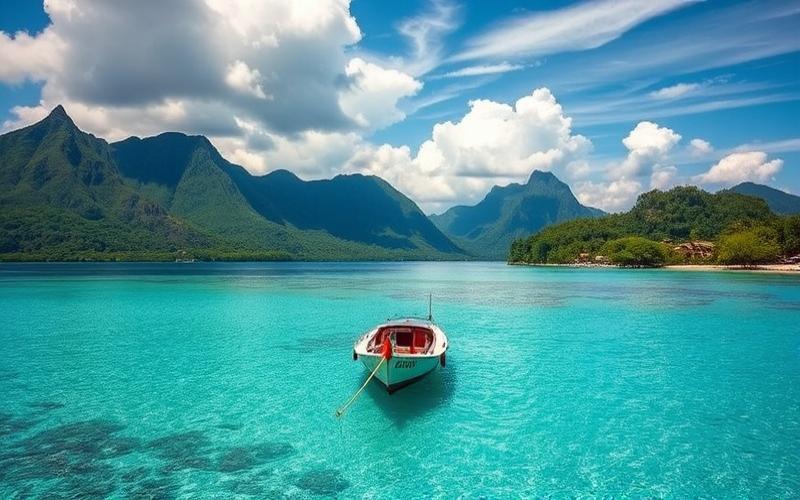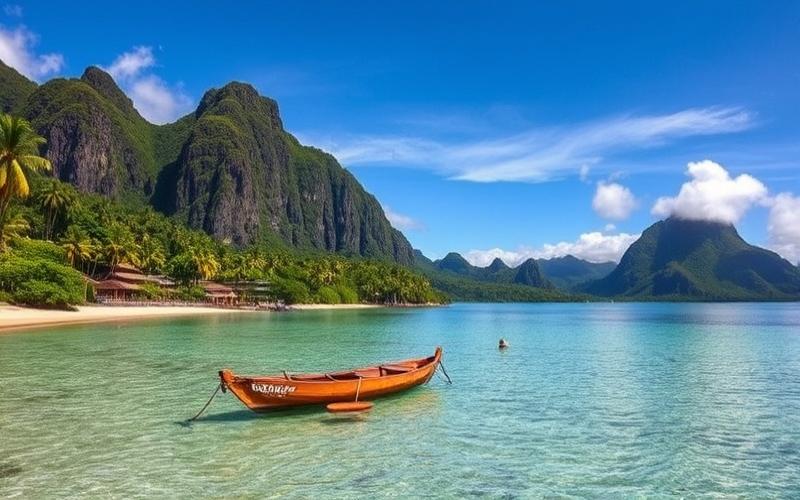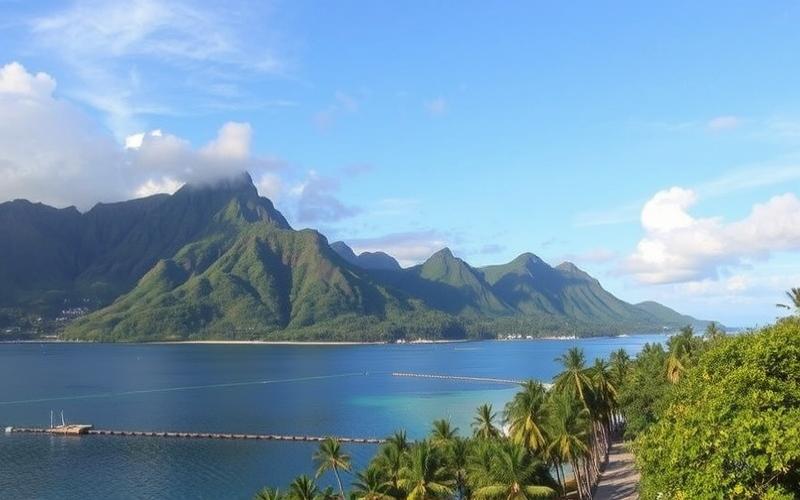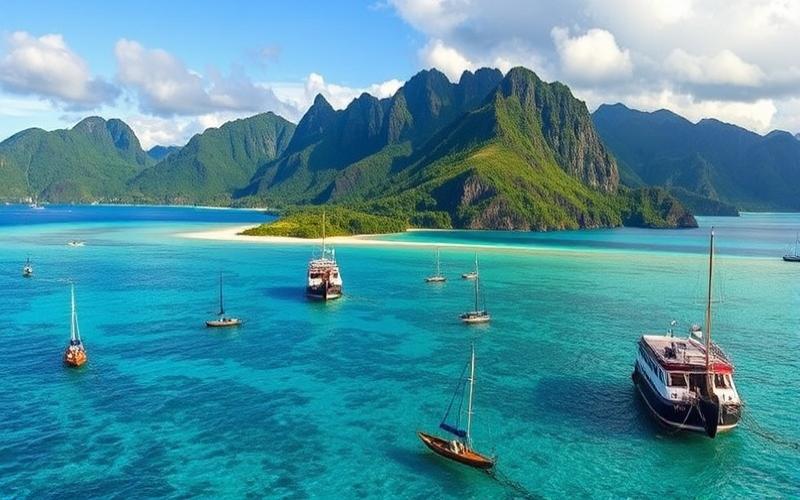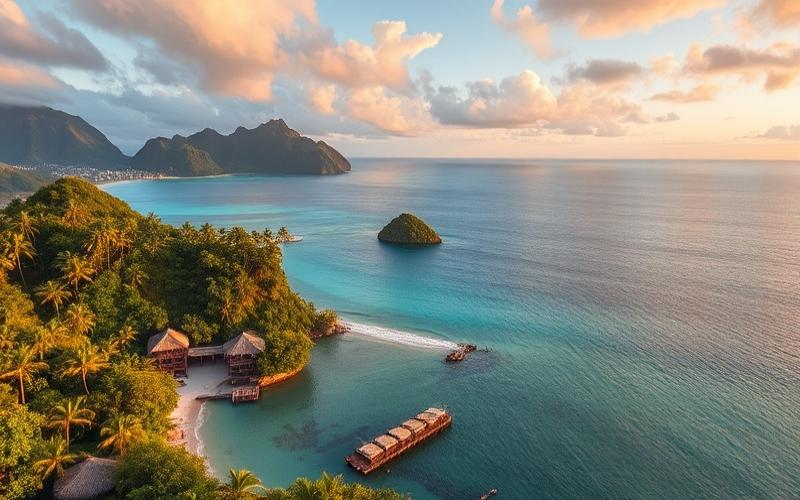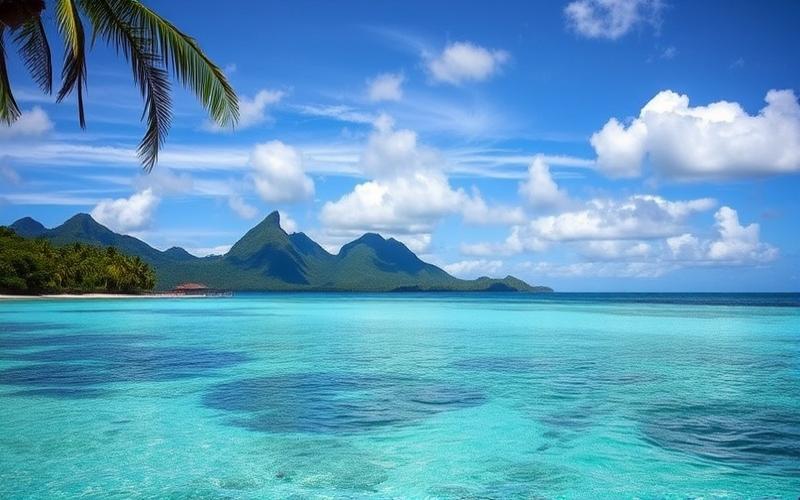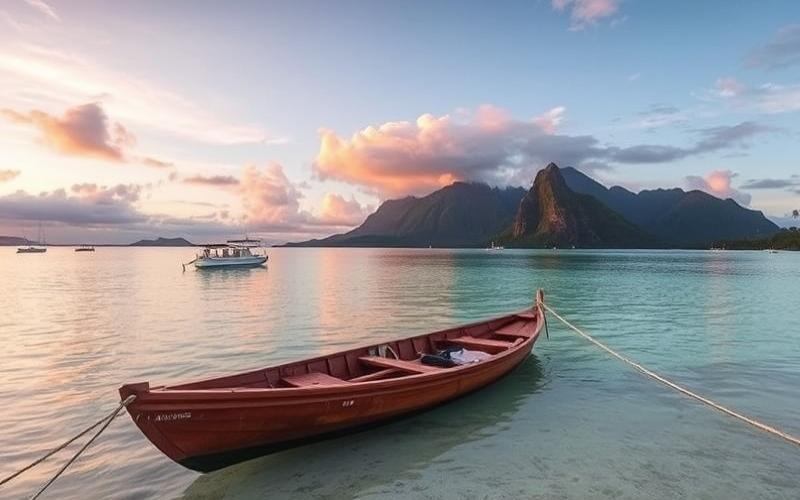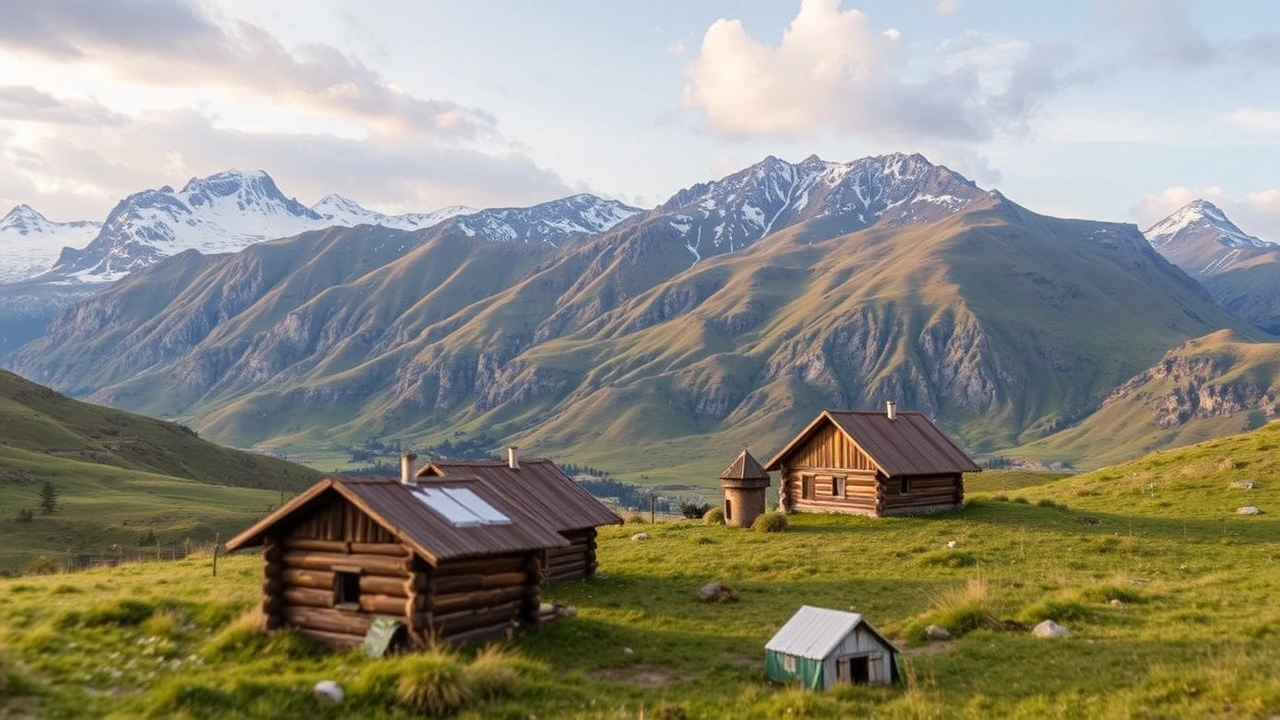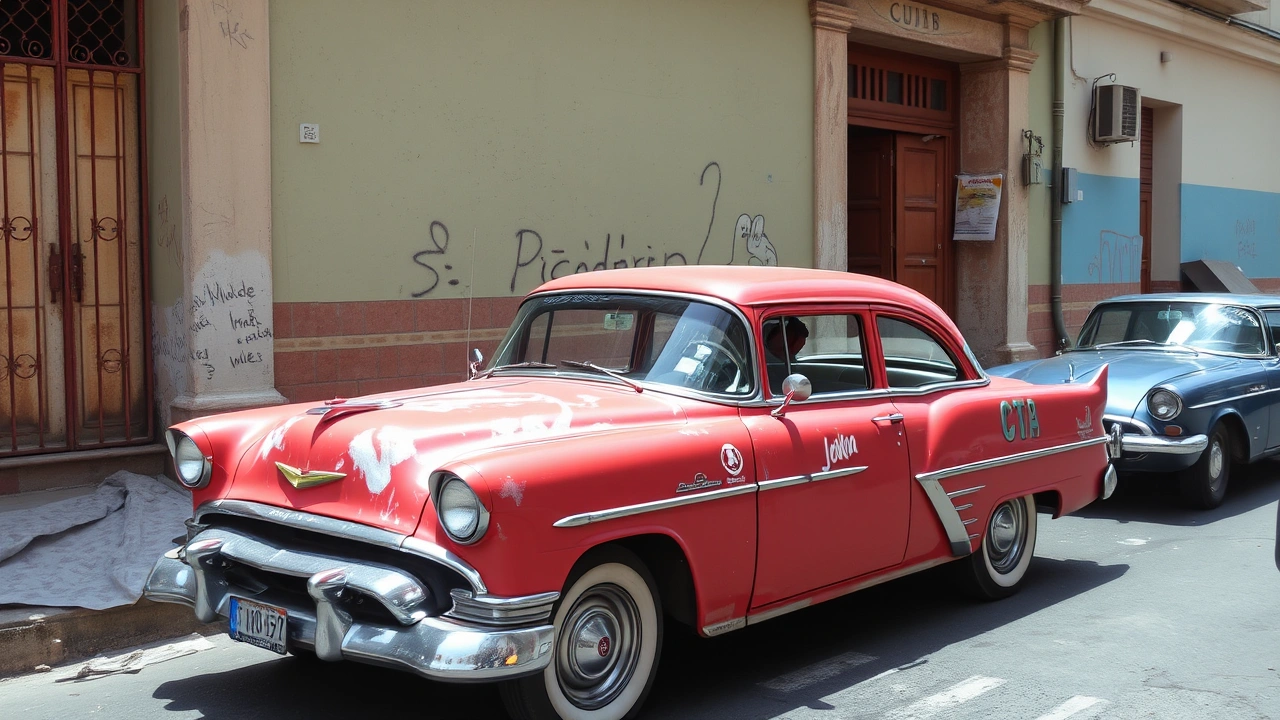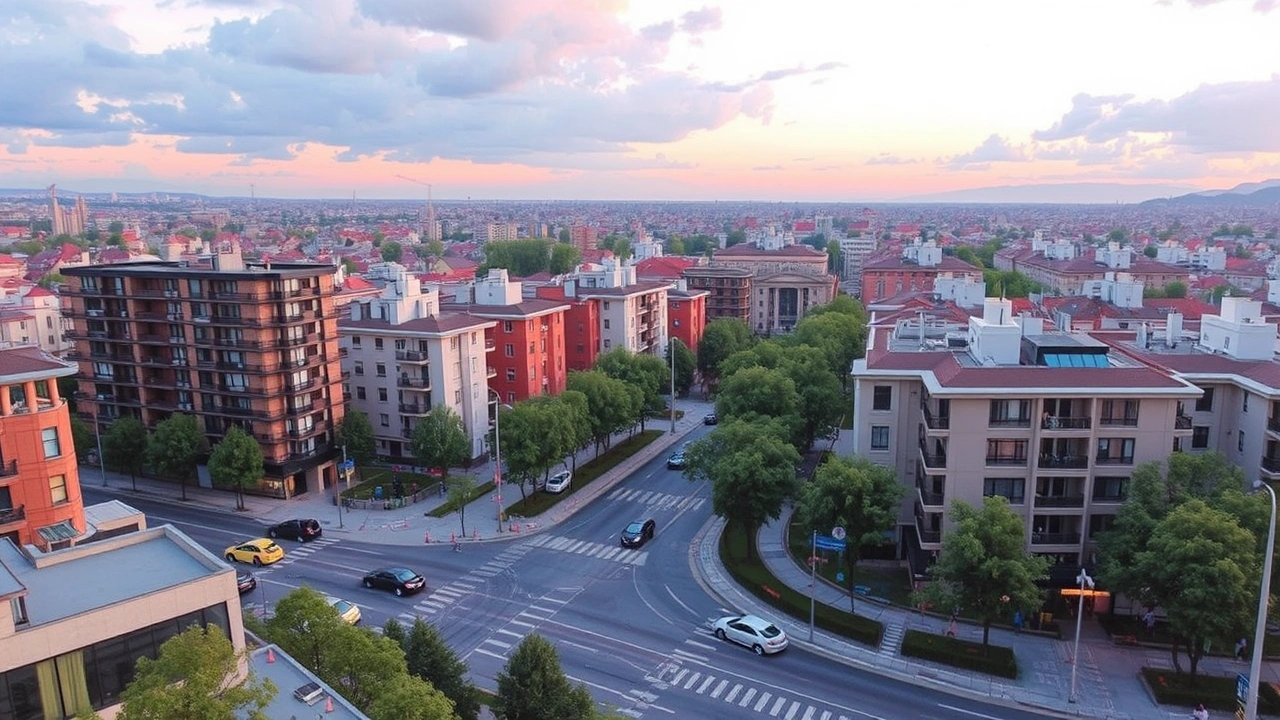
 Published on and written by Cyril Jarnias
Published on and written by Cyril Jarnias
Investing in Vanuatu’s Authentic Villages in 2025
Nestled in the heart of the South Pacific, Vanuatu’s islands offer an idyllic landscape that captivates travelers and investors seeking new unique opportunities.
As the world turns toward more authentic and sustainable experiences, 2025 marks a pivotal moment for those wishing to invest in authentic villages of this island nation.
Combining rich cultural heritage with preserved natural environment, these communities offer fertile ground for innovative projects in harmony with nature.
Good to Know:
Attracting investments to these villages isn’t just financial—it’s also social and ecological.
These investments promise sustainable development and significant returns for both investors and local residents.
Exciting and bold, Vanuatu’s development prospects promise to transform the face of its villages while preserving their authentic soul.
Highlighting Vanuatu’s Underestimated Rural Regions
Vanuatu’s rural regions play a central role in the country’s economic development through their wealth of natural, cultural, and artisanal resources. Agriculture, fishing, and forestry represent over 20% of national GDP and form the foundation of exports, particularly with flagship sectors like coconut, kava, cocoa, and root vegetables. These activities rely on traditional knowledge passed down within villages, thereby enhancing a unique cultural identity that also attracts visitors.
List of specific assets in rural villages:
- Abundant natural resources (coconut, cocoa, kava)
- Traditional environmentally-friendly farming practices
- Local craftsmanship (wood carving, basketry)
- Cultural rituals attractive for tourism
- Preserved landscapes favorable for ecotourism
Targeted investment in these villages offers considerable potential for generating sustainable economic growth. For example:
In Ekasi Village, the introduction of an agricultural cooperative increased local income through better valuation of copra (dried coconut) and improved access to regional markets.
In Eton Village, funds invested in ecotourism resulted in creating seasonal jobs while strengthening local ecological practices: community-based tour guides now organize guided tours and craft workshops.
Recent studies show these approaches have achieved:
- A significant increase in local employment rates (+18% on average after 3 years)
- Active preservation of several vernacular languages through their use in tourist circuits
- A notable rise in annual visitor numbers in certain rural areas (+25% between 2019 and 2023)
Illustrative Table: Positive Effects Observed Following Targeted Investments
| Village | Investment Type | Employment Results | Cultural/Tourism Impact |
|---|---|---|---|
| Ekasi | Agricultural Cooperative | +12 direct jobs | Improved knowledge transmission |
| Eton | Community Ecotourism | +15 seasonal jobs | Increased tourist attendance |
However, several challenges remain:
- Lack of road or digital infrastructure to transport products or tourists
- Environmental risks from uncontrolled development (potential deforestation)
- Persistent inequalities between urban and rural areas that may hinder certain investments
Recommended strategies for ensuring respectful development:
- Support cooperative structures directly involving local communities.
- Implement strict environmental standards so each project benefits both populations and their ecosystem.
- Strengthen rural vocational training focused on organic farming and responsible tourism.
- Further develop essential infrastructure (access to drinking water, secondary roads).
- Systematically involve public/private/community stakeholders in every new project.
Smart integration of the tourism sector with agriculture thus represents a preferred path toward a prosperous future for all Vanuatu’s rural communities, always ensuring to preserve what makes their distinctive wealth: their living traditions and exceptional natural heritage.
Good to Know:
Vanuatu’s rural regions play an essential role in economic development by offering a wealth of unique natural, cultural, and artisanal resources. Investing in villages like Luganville and Tanna, for example, has boosted their economic prosperity while preserving local traditions. These investments have often led to job creation and growth in cultural tourism, as shown in a 2023 case study where local crafts saw sales increase by 40%. However, for these investments to be sustainable and beneficial, it’s crucial to respect local ecologies and integrate communities in development decisions. Strategies such as supporting eco-tourism and training residents in project management can help overcome challenges related to balancing economic growth and cultural conservation.
Vanuatu Rural Real Estate: Unexpected Profitability
Vanuatu’s rural real estate market in 2025 is experiencing unique dynamics that increasingly attract investors seeking profitability and authenticity. Several structural factors explain this enthusiasm, along with price evolution and incentives specific to the local context.
Current rural market context
- Vanuatu benefits from steady economic growth, supported by tourism, agriculture, and strategic positioning in the South Pacific.
- Rural areas remain cheaper than urban hubs like Port-Vila or Luganville. Buildable land inland starts around $50,000 USD, while urban properties can reach several hundred thousand or even millions for premium locations.
- Growing interest in ecotourism and the quest for authentic experiences attract a new international clientele to these less developed regions.
Key factors contributing to profitability
- Low acquisition cost: Rural land is significantly more accessible than coastal areas or major tourist zones.
- Moderate but stable local population growth, coupled with regular influx of tourists seeking seasonal rentals off the beaten path.
- Strong rental demand during high tourist season (May-October), with occupancy rates reaching 70-80% for well-located rural properties.
- Gradual infrastructure development (roads, internet access) increasing intrinsic value of acquired assets.
| Factor | Rural Vanuatu | Urban/Tourist Zone |
|---|---|---|
| Average land price | From $50,000 | $300,000+ |
| Gross rental yield | Up to 13% | Approx. 10-12% |
| Occupancy rate | Up to 80% | Often lower |
Recent price evolution
In recent years:
- Urban zone prices have seen sustained increases due to land scarcity and tourist appeal. Some villas now trade between $500,000 and several million depending on coastal or central location.
- In rural areas, while slight increases have been noted over five years—particularly near new tourist routes—the gap with urban areas remains marked. This disconnect still allows savvy investors to realize significant latent capital gains during future sector development.
Tax incentives & government benefits
The Vanuatu government is multiplying measures to encourage investment outside urban areas:
- Advantageous property taxation: complete absence of tax on property income or capital gains realized locally.
- Possibility for foreign investors to easily obtain residency permits through certain amounts invested in local real estate—facilitating rental management and extended stays without heavy administrative constraints.
Testimonials & case studies
“I acquired two hectares near Luganville three years ago to develop some ecotourism bungalows: my occupancy rate now exceeds initial projections thanks to European groups seeking rural authenticity.”
Jean-Pierre D., French investor
An Australian family investing in seasonal rural rentals also reports:
“Our net yield reaches about 12% per year—well above our previous investments in Australia.”
Practical advice for potential investors
- Always physically visit the land before purchase; prioritize properties near recently upgraded secondary road routes
- Ensure with local notary that all customary titles are regularized
- Budget for renovation/construction costs sometimes higher than European standards
- Diversify rental offerings (nature bungalows + traditional accommodation)
Potential risks:
- Limited liquidity if quick resale needed
- Cyclone risk requiring enhanced insurance
- Strong dependence on international tourism
Mitigation strategies:
- Prioritize properties also suitable for local residential market
- Evaluate complementary agritourism potential (farm operation + accommodation)
Future prospects
Current trends suggest continued gradual but stable appreciation of rural real estate thanks to:
- Slow but constant development of national road network,
- Continuous rise of experiential tourism,
- Public policies clearly favoring this low-density segment,
opening real long-term opportunities both in terms of asset value and immediate cash-flow generation.
Good to Know:
Vanuatu’s rural real estate market in 2025 attracts many investors thanks to relatively low land acquisition costs, accentuated by local population growth and constant influx of tourists seeking authentic experiences. Unlike urban areas where prices are climbing, rural properties offer good return on investment, with rapid evolution of tourist and local infrastructure also playing in their favor. Tax incentives implemented by the government enhance this appeal, encouraging sustainable and profitable investments. Testimonials from investors who have already seen their profits double within a few years illustrate this opportunity, while emphasizing the need for rigorous due diligence to mitigate risks like natural disasters. By cultivating an adaptable approach and staying continuously informed, investors can maximize returns in this promising sector, with Vanuatu announcing attractive rural development prospects for the future.
Investment and Authenticity: Preserving Vanuatu’s Cultural Heritage
The balance between economic investment and preservation of Vanuatu’s cultural heritage relies on a set of coordinated strategies involving local communities, strong regulatory frameworks, and innovative initiatives adapted to the island context.
Initiatives and strategies to reconcile development and authenticity
- Establishment of a national inventory system for historical and cultural sites to ensure knowledge, archiving, and long-term planning of heritage management. This approach includes training local personnel in inventory techniques and applied research.
- Systematic information for political and cultural actors as well as the general public about the importance of cultural heritage to strengthen their involvement in its protection.
- Creation of legal bases for cultural assessment prior to any investment or development project.
- Participatory community management: local communities are involved at every stage—priority identification, decision-making, implementation—particularly within protected “Tabu” areas established by traditional chiefs to preserve both biodiversity and spiritual significance attached to places.
Advantages of involving local communities
- Local knowledge ensures sustainable management based on deep understanding of ancestral practices.
- Community involvement fosters social acceptability of projects while ensuring economic benefits directly return to residents.
- Intergenerational transmission is strengthened: younger generations trained in modern heritage techniques while perpetuating traditional rites, languages, and gestures.
Laws & regulations protecting heritage
| Law/Regulation | Main Objective |
|---|---|
| UNESCO Convention (2003) | Safeguarding intangible cultural heritage |
| National frameworks | Inventory/protect significant sites & objects |
| Tabu Zones (local customary law) | Traditional community protection legally recognized |
These mechanisms often require prior cultural assessment before any major economic intervention to avoid irreversible damage to social or symbolic fabric.
Concrete examples of balanced investments
- The Vanuatu National Cultural Center illustrates a model where modern infrastructure serves not only to exhibit but also to keep oral traditions (kastom), ritual dances, and sacred objects alive through programming developed with local guardians.
- On Aneityum, the first officially recognized “Tabu zone” enabled not only ecological protection but also dynamic maintenance of ritual practices; meanwhile soft tourism now generates income without compromising cultural or environmental integrity.
Cultural tourism as sustainable opportunity
Tourism focused on strict respect for customs opens a promising economic field:
- Immersive offerings supervised by initiated local guides
- Direct partnerships with artisans/villagers
- Limited visits according to traditional calendar
This type of investment offers several returns:
- Increased international recognition
- Recurring revenues equitably redistributed
- Strengthened local identity pride
“Effective preservation requires shared governance where each community becomes an active guardian of its own values. This synergy will enable Vanuatu to combine reasoned economic growth with authentic transmission.”
In summary: closely associating private/public investments with customary social structures ensures not only financial viability but especially living perpetuation of precious Vanuatu heritage.
Good to Know:
Preserving Vanuatu’s unique cultural heritage while welcoming economic investments relies on strategic initiatives highlighting the involvement of local communities. Guaranteeing village authenticity requires close collaboration with residents, who participate in project design and implementation, ensuring ancestral traditions and know-how are respected. Local laws and regulations also protect this heritage, with successful examples like the infrastructure development project in Port Resolution village which, thanks to active participation of local tribes, not only improved living conditions but also enhanced the site’s tourist appeal while preserving its authentic character. Cultural tourism furthermore offers investment opportunity through an approach that values local customs, providing substantial economic returns for communities while preserving the country’s cultural essence.
Hidden Opportunities in Vanuatu’s Authentic Villages
Vanuatu’s authentic villages represent unique investment opportunities, combining cultural preservation, tourism potential, and sustainable development.
Cultural aspects and tourist appeal
- Villages perpetuate traditional lifestyles, with wealth of customs passed down through generations.
- Local craftsmanship (weaving, carving) and ceremonies (dances, songs, sand drawings protected by UNESCO) attract travelers seeking authentic experiences.
- Residents’ warm hospitality is renowned: participation in daily village life includes initiation into local rites, sharing traditional meals, and discovering animist beliefs.
- Emblematic examples:
- Ekasup Village near Port Vila for immersion in Melanesian culture
- Leweton Cultural Village on Espiritu Santo with its craft and musical demonstrations
- Emaio Village on Tanna for its harmonious relationship with environment
Sustainable development & ecotourism
Tourism already represents 40% of the country’s income; it largely relies on small typical accommodations integrated into natural landscape (traditional bungalows).
Community management enables:
- Direct circulation of revenue within the village
- Local sourcing through organic farming, fishing, or extensive livestock
Several projects aim to establish a national standard to guarantee quality hospitality while enhancing natural and human heritage
| Opportunity | Description |
|---|---|
| Traditional accommodation | Family bungalows managed by villagers |
| Immersive circuits | Guided tours around living traditions |
| Craftsmanship | Direct sales to visitors |
| Local agriculture | Supply of fresh products to tourists |
Collaboration & heritage enhancement
Working hand in hand with local communities guarantees that each project directly benefits residents while respecting their values. This promotes:
- Active safeguarding of tangible and intangible heritage
- Sustainable economic benefits for the village collective
Institutional support & incentives
The Vanuatu government supports these approaches through:
- Aid for gentle modernization of existing accommodations according to national standard adapted to island context
- Partnerships with international institutions to develop light infrastructure compatible with ecotourism
Tax incentives are sometimes offered to encourage responsible private investments in the rural sector.
Current success examples
Initiatives such as those conducted in Ekasup or Leweton show it’s possible to attract international clientele sensitive to authenticity while generating concrete positive impact for an entire community. Other community projects regularly emerge thanks to this participatory model.
Good to Know:
Vanuatu’s authentic villages offer unique investment opportunities thanks to their well-preserved cultural traditions and residents’ warm hospitality, attracting tourists seeking authentic experiences. Sustainable development potential is high, particularly through ecotourism and community projects, supported by collaboration with local populations to enhance their heritage while generating community revenue. The Vanuatu government also offers tax incentives to stimulate foreign investments. One success example is the eco-village project in Tanna, which combines eco-friendly accommodation and cultural immersion, generating significant increase in local tourism.
Disclaimer: The information provided on this website is for informational purposes only and does not constitute financial, legal, or professional advice. We encourage you to consult qualified experts before making any investment, real estate, or expatriation decisions. Although we strive to maintain up-to-date and accurate information, we do not guarantee the completeness, accuracy, or timeliness of the proposed content. As investment and expatriation involve risks, we disclaim any liability for potential losses or damages arising from the use of this site. Your use of this site confirms your acceptance of these terms and your understanding of the associated risks.

